What are healthy boundaries? And how do we draw the line politely? If you’re able to verbalize your thoughts in a relationship, it’s one of the signs of healthy boundaries.
Healthy boundaries are essential in recovery from codependency. They both build and reflect self-esteem. Learning to have healthy boundaries is an essential aspect of individuating and becoming an individual and autonomous person.
Boundaries are learned in childhood. Some dysfunctional families are enmeshed and your individuality and boundaries are ignored or openly disrespected in words or actions; for example, verbal and physical abuse, prying into your personal communications, denying your privacy, and disrespecting your feelings and opinions.
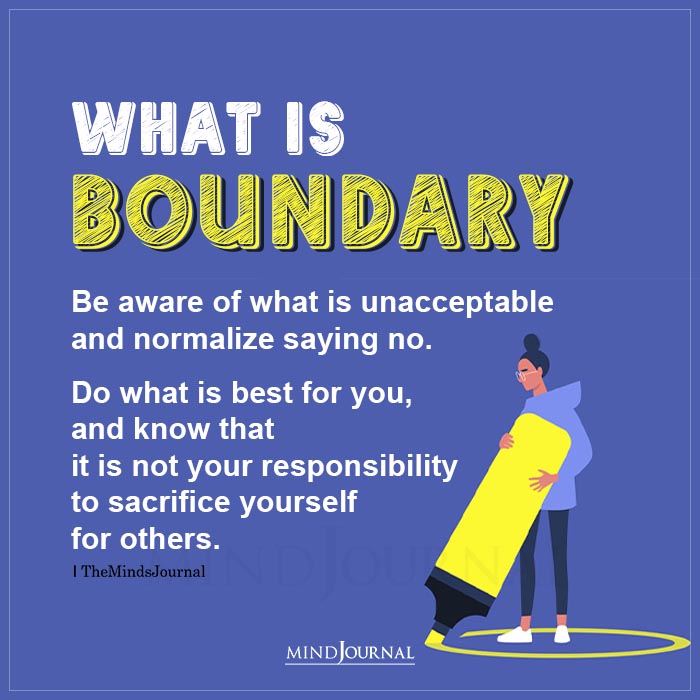
Trauma and toxic shame damage our boundaries. Boundaries are also taught and modeled by parental guidance and behavior in how to treat other people.
First, you must be able to identify your feelings, believe you have rights and value, and then have the courage and the words to express your boundaries.
Related: How To Set Boundaries To Protect Your Mental Health
Signs of recovery and healthy boundaries are:
10 Signs Of Healthy Boundaries In A Relationship
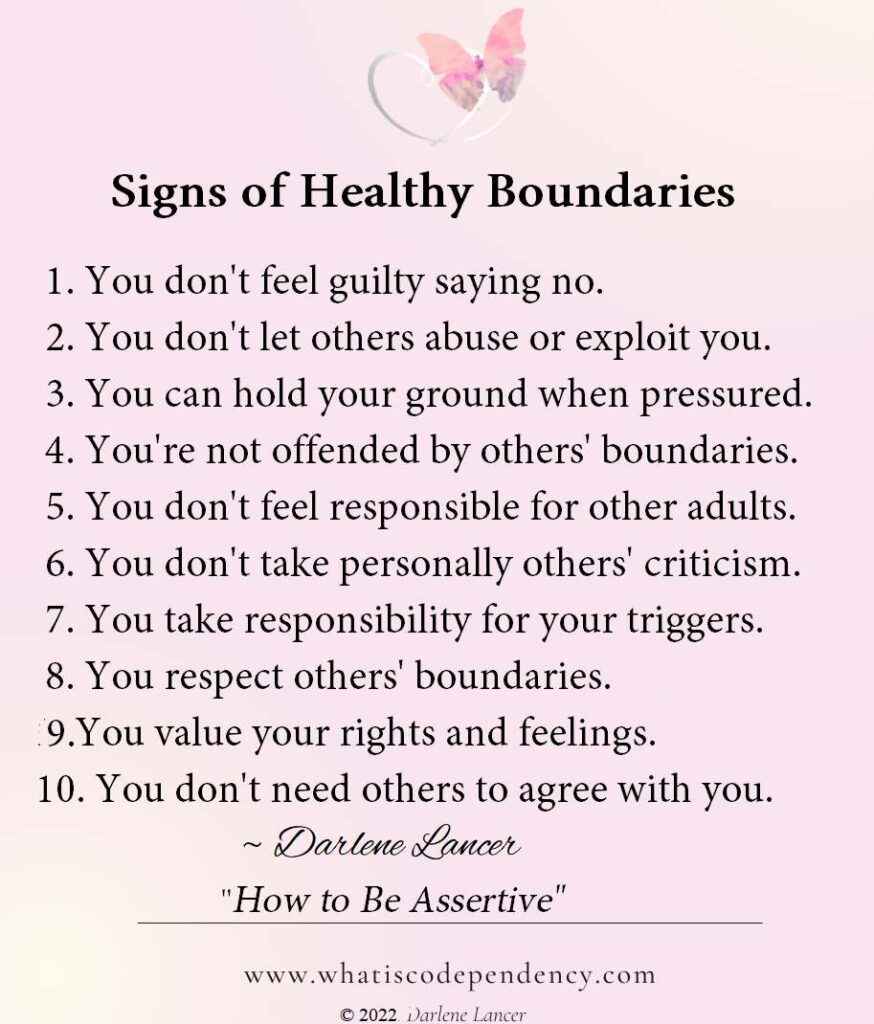
1. You’re able to say “no.”
Codependents hold onto resentment when they don’t set boundaries and usually feel guilty when they do. They don’t feel entitled to set them and experience setting boundaries as harsh or selfish.
2. You don’t let others abuse or exploit you.
With healthy boundaries, you won’t let others violate you. You won’t tolerate abuse or let people take advantage of you. You will speak up and let people know how you expect to be treated.
Related: 5 Tips For Setting Boundaries As An Introvert
3. You can hold your ground when pressured.
When you set an important boundary, you won’t let other people talk you out of your position on something important. Your boundaries can still be flexible to compromise in relationships, such as going out when you’d prefer to stay home, but not on important issues. For example, if you feel your health would suffer going out, then you’d stick to your boundary.
4. You’re not offended by others’ boundaries.
When other people say no or set boundaries, you respect them. You don’t immediately react with hurt or anger and assume it’s because they don’t care about you. (In some cases it might be, such as with a narcissist, but still, rather than take it personally, it’s more information about what to expect from that relationship.)
5. You don’t feel responsible for other adults.
Although we’re responsible for our children, with adults we’re responsible to them, but not for them. In close relationships, codependents assume they cause other people’s feelings. They often react with irrational guilt, frequently apologize, and try to “fix” the other person’s negative feelings.
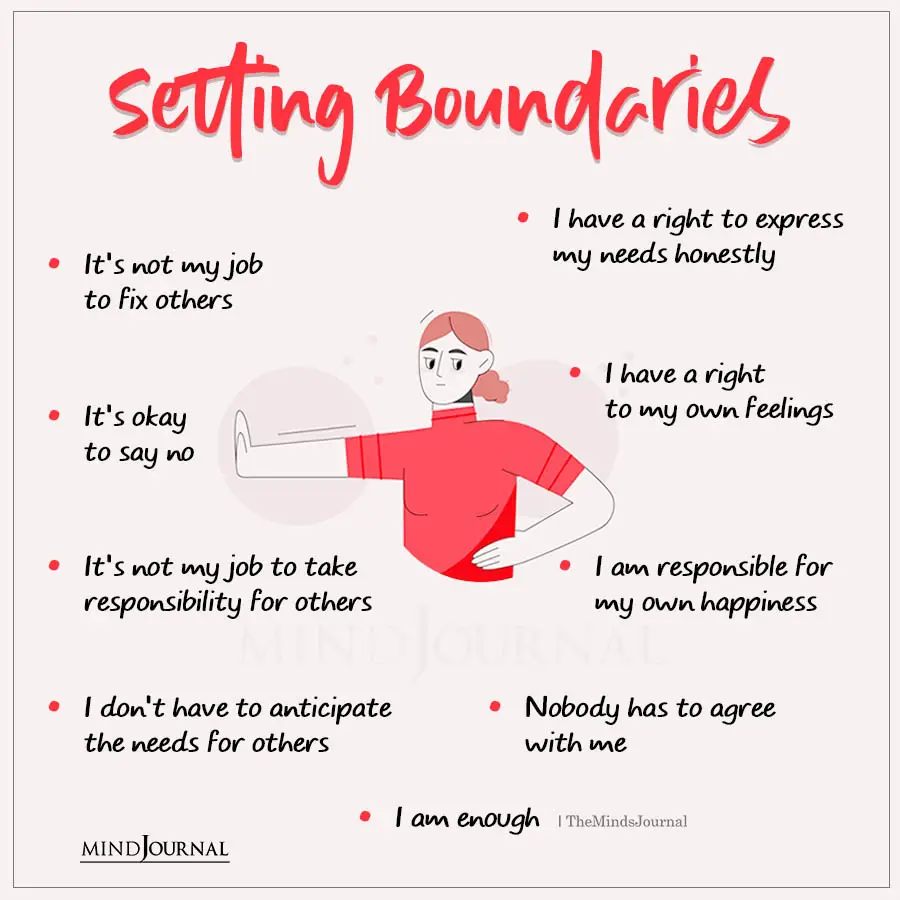
6. You don’t take personally others’ criticism.
With healthy boundaries, you know yourself. Your boundary filters criticism. You might consider whether the criticism is valid or not. If it’s abusive, then the statement is more a reflection of the abuser, not you. Toxic shame can make your boundaries porous so that you have no filter and absorb words by other people as true.
7. You take responsibility for your triggers.
When you overreact or are triggered, instead of blaming someone else, you manage your triggers in a healthy way. This might include an apology.
8. You respect others’ boundaries.
You realize that people are separate, different individuals with differing boundaries. You expect others to respect yours and you do the same. You’re able to compromise in relationships.
9. You value your rights and feelings.
This is a precursor to setting boundaries. You must believe you have rights and honor your feelings before you can assertively ask and expect other people to do the same.
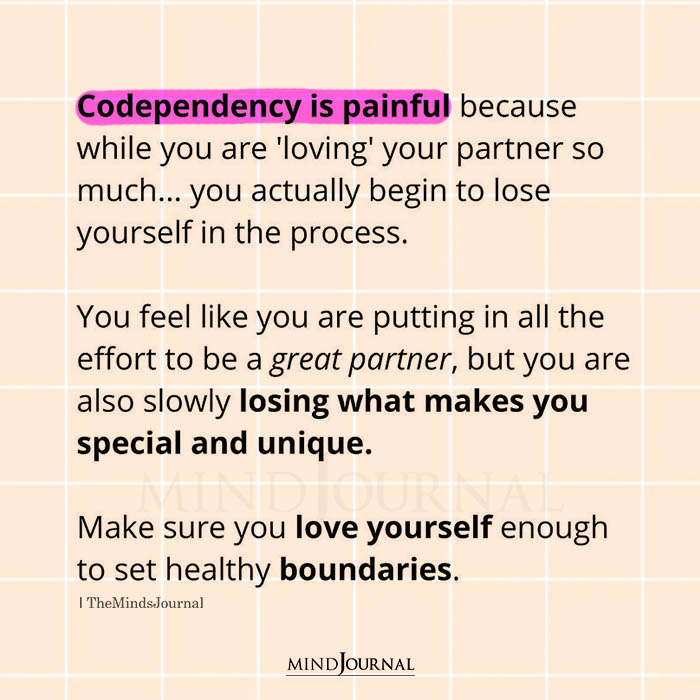
10. You don’t need others to agree with you.
As a separate individual with healthy boundaries, you show other people the same respect. You have no need for other people to agree with you, and you don’t bother to show them you’re right and they’re wrong. You express your opinion, discuss various aspects of the subject, but you’re able to respectfully disagree.
Related: 7 Tips For Setting Boundaries With Toxic People – The Minds Journal
Improving your boundaries raises your self-esteem and vice-versa, also. Get my webinar: How to Be Assertive (or Ebook: http://bit.ly/2DBmjnt).
© 2022 Darlene Lancer
If you’re still dealing with being codependency or a toxic relationship, try and learn to create healthy boundaries for yourself!
Written by: Darlene Lancer JD, MFT
Originally appeared on: WhatIsCodependency.com
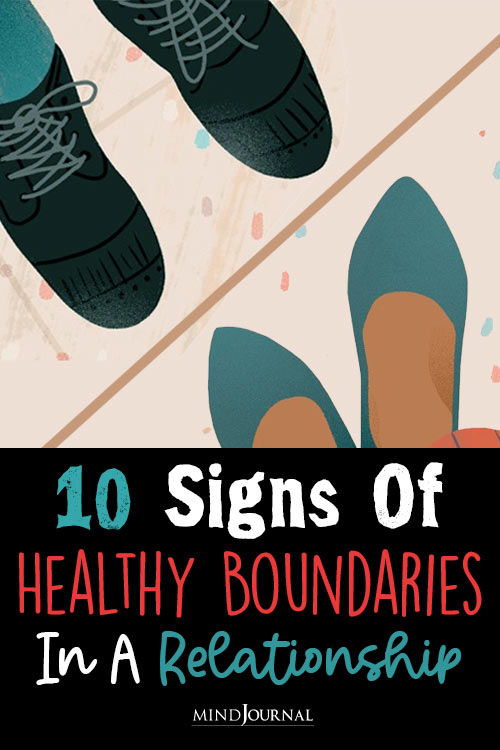
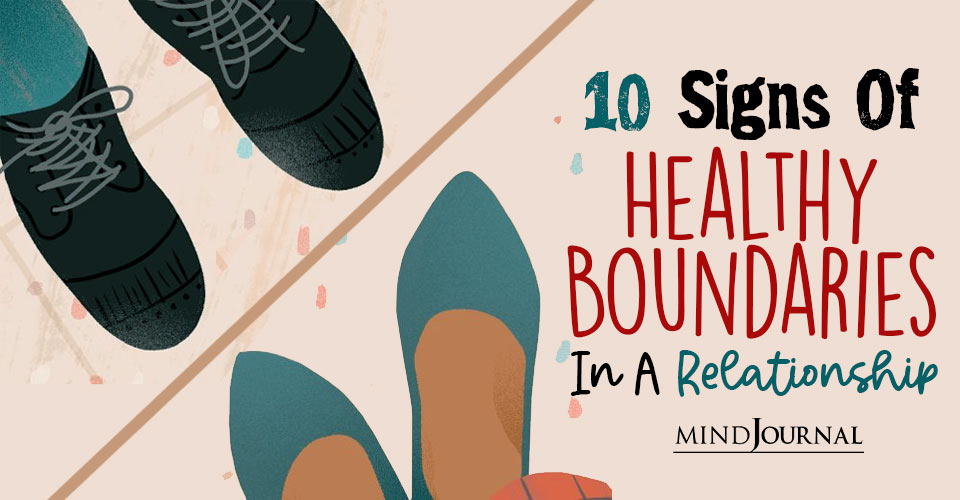
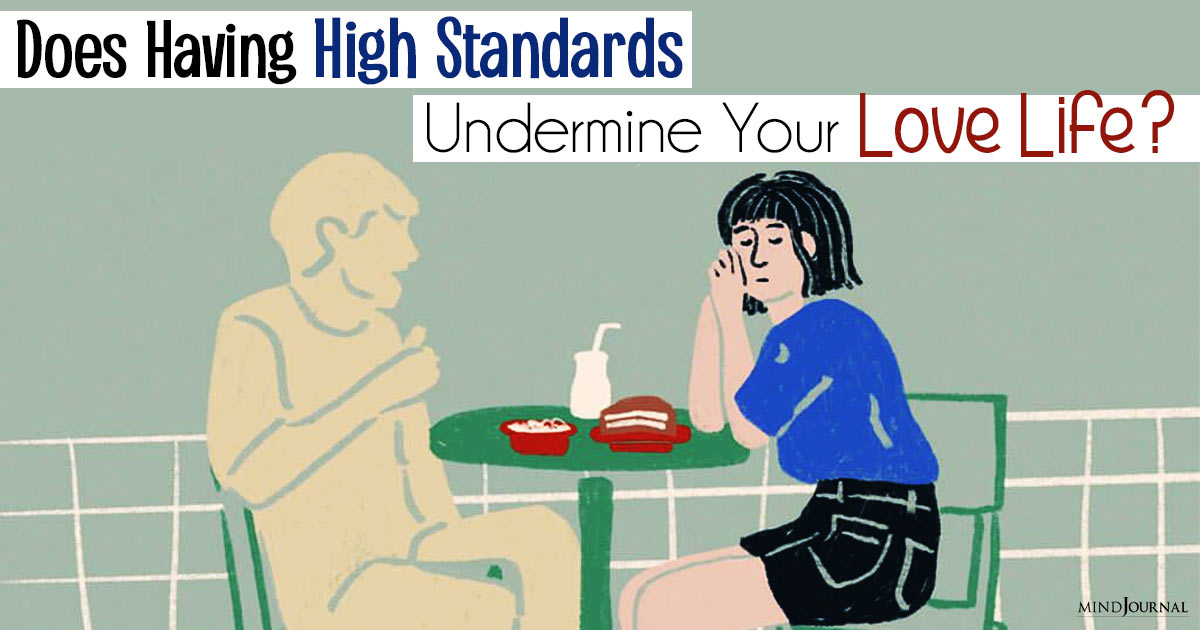

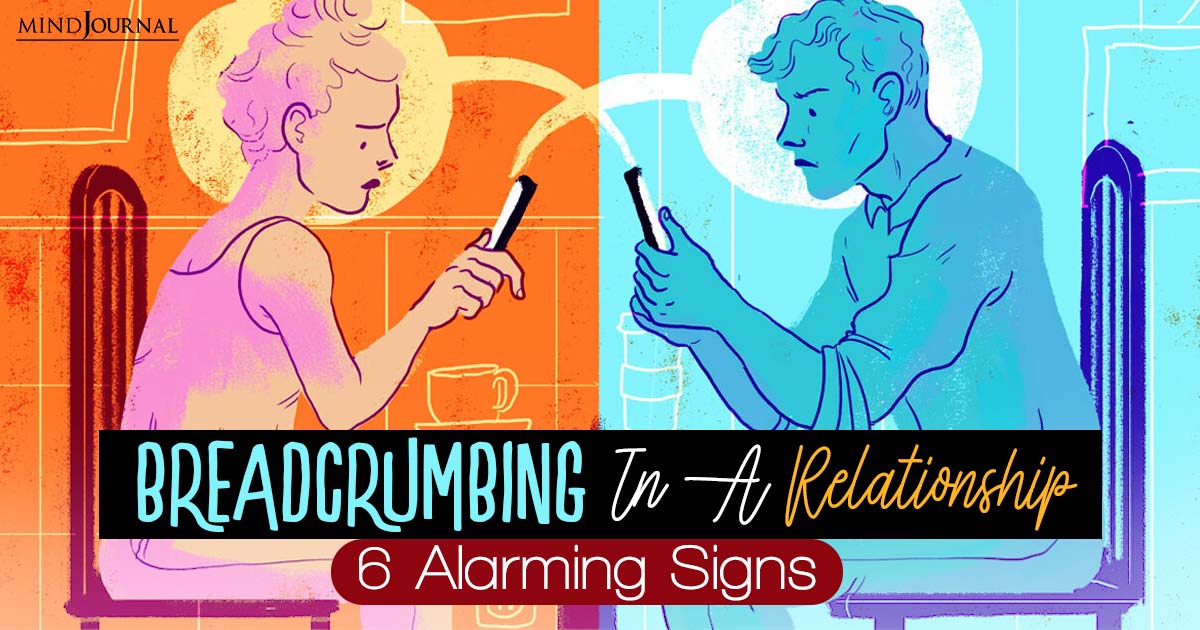
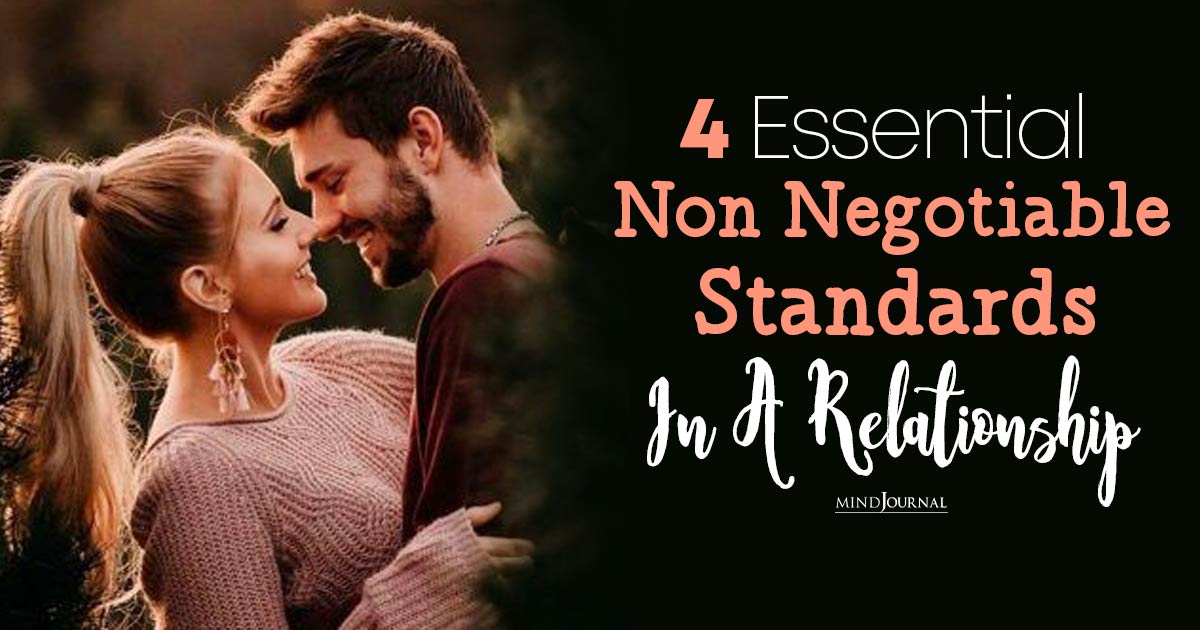
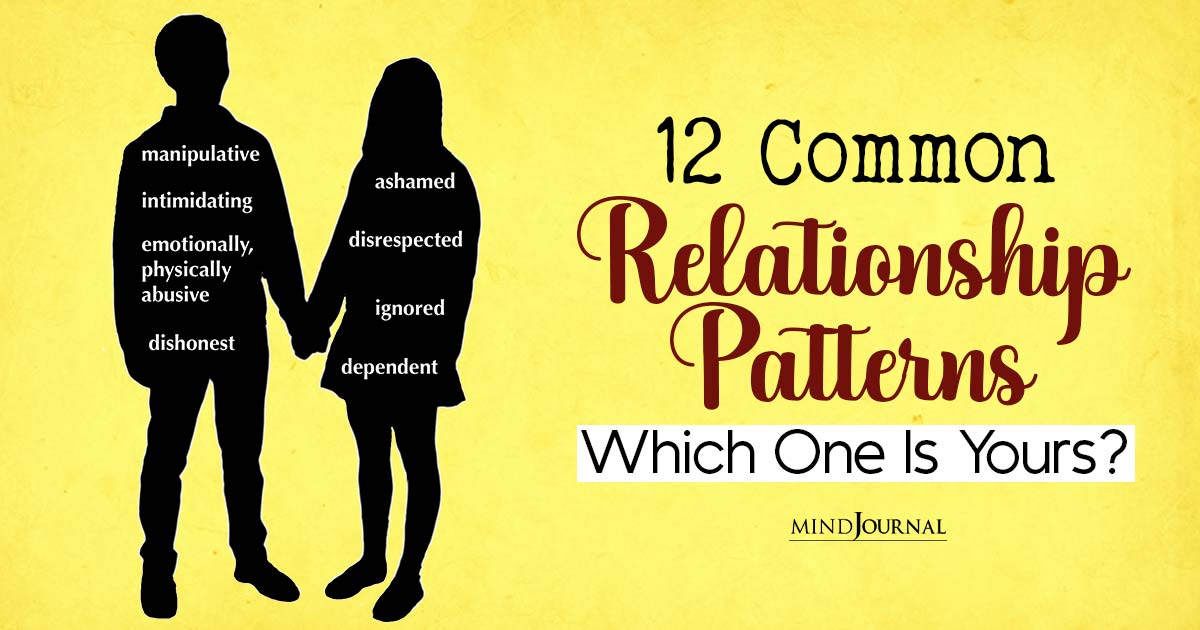

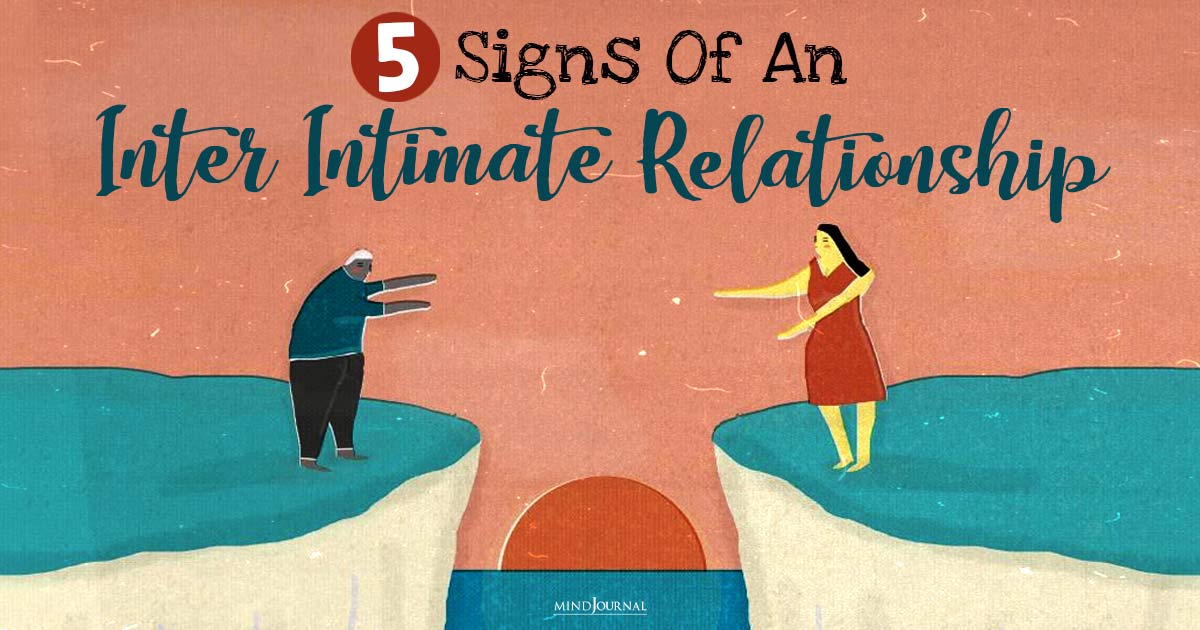
Leave a Reply
You must be logged in to post a comment.